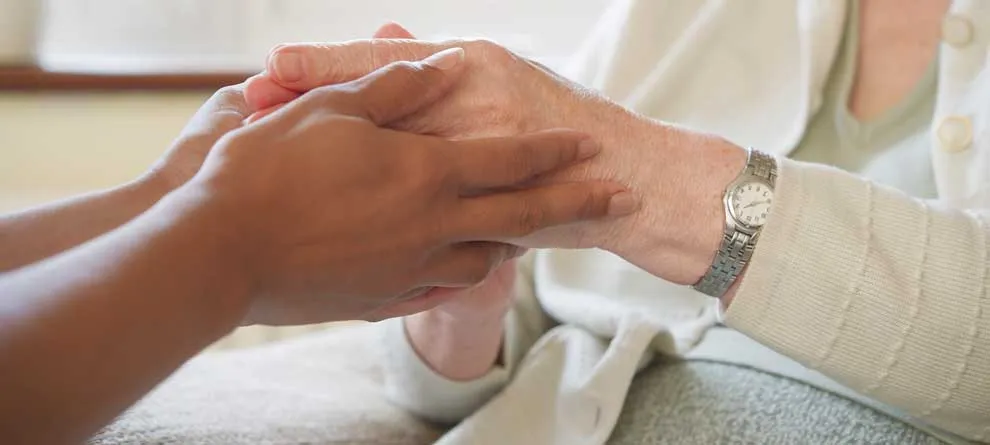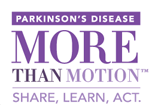
New Tools for Caregiving
Words By Kristen C. French
For someone with Parkinson’s disease, the caregiver becomes a lifeline. He or she can help keep track of the patient’s medication schedule, make sure that home is safe, and be an advocate at the doctor’s office not to mention offer a lot of emotional support. So how do the two of you make the most of this arrangement without driving each other crazy? Following are tips, tools and resources that can help strengthen the caregiving relationship.
Get Organized
There is a lot to manage when it comes to PD, but websites and apps can help you stay on top of things. The National Parkinson Foundation has a helpful page on its website called “How Do I Get Organized?” Here you can find a series of key checklists that cover everything from advanced directives to contact information for the family vet. The National Parkinson Foundation also has an app, Parkinson’s Central, which offers a host of useful features. You’ll find a convenient “near me” tool for Parkinson’s services in your area, tips on how to get the most out of doctor’s visits, information on insurance and finance, and special caregiver content. The website CareZone and its app allow you to keep all of your family’s health information in one place. You can get your contacts organized, keep a journal, store photos of important documents like a driver’s license, and sync appointments and refill reminders with other calendars.
Find Great Care
A growing network of 41 Parkinson’s Centers of Excellence around the world are staffed by the world’s leading Parkinson’s specialists. These centers are carefully selected by the National Parkinson Foundation based on 21 different criteria (a focus on comprehensive care, evidence-based treatment and cutting-edge research, for instance). If you aren’t near a specialist, Johns Hopkins University currently offers the Global Telemedicine Clinic for Parkinson’s Disease, a new initiative to provide one-time, web-based video consultations for people with PD. Due to state licensure rules, U.S. patients are eligible if they live in California, Delaware, Florida, Maryland or New York. If and when you’re looking for an in-home assistant, CareLinx may provide ideas. The online community of professional caregivers provides caregiver profiles, background checks and screening. Or if it’s time to consider a full-service home, try Caring.com, which offers state-by-state guides and reviews of the best senior care facilities.
Track Meds and Symptoms
You likely already have a pillbox, schedule and timer. But did you know that some pharmacies offer to organize the medications for you, and even send them to your address every month, often for free? For the technology-averse, the National Parkinson Foundation also has a customizable Excel spreadsheet. And the Day by Day Parkinson’s Diary, a paper notebook, allows you to monitor food and medication times as well as record feelings throughout the day. If you prefer working off your smartphone or a tablet, there are some great apps that manage medication scheduling and allow you to record symptoms and share them with a doctor. Check out Medication Tracker, Parkinson’s Disease @Point of Care, or PD Life, to name a few. Managing My Parkinson’s also offers a digital journal and creates easy-to-understand charts that record test results and medication adherence.
Monitor Movement, Stay Safe
Monitoring movements of a PD patient can help them and caregivers see the bigger picture of physical challenges. Kinesia 360 is a continuous monitoring system that includes wearables and a mobile app. It comes with two sensors, one for the ankle and one for the wrist, and is aimed at measuring tremors, bradykinesia and dyskinesia. Other wearables such as AT&T’s EverThere, or the Cuff line of wearable jewelry can help track falls and location, and alert family members in an emergency via wireless signal. The Lively watch provides step counting, family alerts, medication reminders and a one-push help button.
PD patients can help give back to the community by contributing to research. The Parkinson mPower app (Mobile Parkinson Observatory for Worldwide, Evidenced-based Research) is a brand-new app that’s part of a study to collect and track symptoms of PD progression to better understand the disease, and how wearables can help measure it. Through the use of surveys and tasks, like tapping buttons on your phone using two fingers, the app measures dexterity, balance, gait, voice and memory.
Speak Up About the Awkward Stuff
Some Parkinson’s symptoms and side effects from medications may be difficult or unpleasant to talk about. But don’t be shy about discussing them with the doctor. He or she may be able to adjust the dosage or can suggest other therapies. Keep careful track of any symptoms or side effects you would like to discuss, and send a list ahead of time if the doctor accepts digital records. A site such as PatientsLikeMe may be beneficial. It’s best to talk to your doctor for medical advice, but at this online platform, individuals can connect with others who have similar conditions and share experiences.
Find Support
You’re probably aware of the many support groups out there for people living with Parkinson’s. The Parkinson’s Disease Foundation, for example, offers a toll-free number for anyone looking for a support group in their area (that HelpLine is 1-800-457-6676). But there are also support groups for caregivers of all kinds, such as the Well Spouse Association or Family Caregiver Alliance. Check the websites of these groups to join online forums. Thanks to the Internet, you can also watch caregiving webinars, which address everything from mealtime and swallowing to the rise of new technologies that support caregivers. With websites such as Lotsa Helping Hands, you can keep family and friends in the loop, and get help for specific tasks or share caregiving responsibilities. After all, caregivers don’t have to go it alone.
Originally printed in MoreThanMotion, Spring 2015




